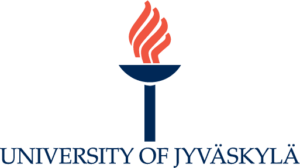The conference was organized by the Consortium for Higher Education Researchers (CHER) together with the Finnish Institute for Educational Research, University of Jyväskylä and the Consortium of Higher Education Researchers In Finland (CHERIF).
Marek Kwiek chaired a panel session Higher Education Research and its Global Communities: Collaboration Networks, Topics and Large-scale Data on September 1, 2022.
Panelists were Hugo Horta, Justin J.W. Powell & Marek Kwiek
His presentation was about:
„The Higher Education Research Community: Measuring Who They Are and Where They Publish (Using Structured Big Data)”
The three panellists will focus on current and future transformations of higher education research and its communities, with a special interest in scholars involved in the field, their collaboration networks, research topics and the overall impact of the use of large-scale datasets. The panellists will discuss their recent large-scale research based on three different analytical perspectives. Marek Kwiek will discuss briefly prestige generation in core and elite journals in higher education (6,334 articles in six elite journals and 21,442 articles in core journals, 1996-2018) and their authors (27,000 academics involved in higher education research). Hugo Horta will analyze briefly the likelihood of research collaborations based on the similarity of collaborators’ preferences and attributes (co-authorship matrix of 913 higher education researchers). And Justin J.W. Powell will discuss briefly automated bibliometric topic identification and social network analysis (9,067 papers in core higher education journals, 1998-2018).
Abstract:
Marek Kwiek will discuss the role of full-time and one-time or episodic researchers in higher education using the prestige maximization model of higher education institutions which links publication in prestigious journals to salary and reward systems. He will address two research questions: How is the global higher education research community stratified in terms of the intensity of engagement in publishing in elite journals? And how is the geography of country affiliations changing? Hugo Horta will discuss homophily with respect to geographical, ascribed, acquired and career-related attributes in co-authorships showing that geographic and institutional attributes are by far the most powerful homophilic drivers of collaborations. He will emphasize the importance of physical proximity, national incentives, and shared culture, language, and identity. He will also analyze the extent to which similarities in the research agendas of researchers predict co-authorship. And Justin J.W. Powell will discuss a remarkable expansion in the volume of papers and co-authorships in higher education research which has, surprisingly, not resulted in a more diverse network. He will show how existing co-authorship patterns are strengthened, with the dominance of scholars from a few Anglophone countries largely maintained. The two-mode social network analysis of countries and topics used suggests that while Anglophone countries have led the development of higher education research, China and Germany, as leading research-producing countries, are increasingly influential within this world-spanning network. Topically, the vast majority of co-authored papers in higher education research focuses on individual-level phenomena. The three panellists will discuss with the audience the implications of their studies for the future of the multidisciplinary field of higher education. As the field is opening in new directions and is being examined from global perspectives, advantages and limitations of large-scale data sources will be discussed.




